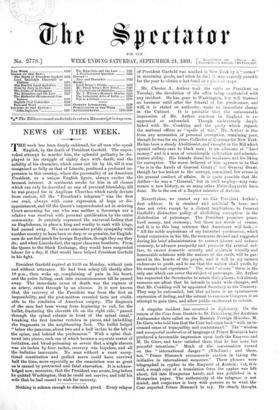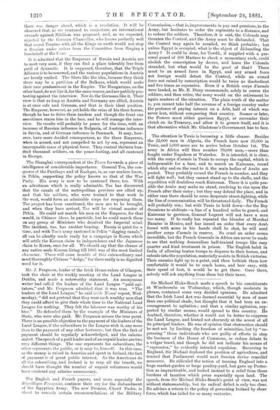A singular incident has occurred in diplomacy. On the return
of the Czar from Dantzic to St. Petersburg, the Austrian.. Ambassador there called on the Russian Foreign Minister, M. De Giers, who told him that the Czar had comeback" with an in- creased sense of tranquillity and contentment." The "wisdom and unexpected moderation of language of Prince Bismarck have produced a favourable impression upon both the Emperor and M. De Giers, and have satisfied them that he has none but peaceful intentions." Much of the conversation turned, on the "international danger " (Nihilism) ; and there, too, "Prince Bismarck recommends caution in taking the- initiative in international measures." These phrases were- telegraphed in cypher to the Emperor of Austria ; but, it is said, a rough copy of a translation from the cypher was left about, fell into Hungarian hands, and was pnblished in a Hungarian paper. The authenticity of the telegram is not denied, and conjecture is busy with guesses as to what the Czar expected Prince Bismarck to say. He clearly thought there was danger ahead, which is a revelation. It will be observed that, as we ventured to conjecture, an international crusade against Nihilism was proposed, and, as we expected, rejected by the German Chancellor, who knows perfectly well that secret Treaties with all the Kings on earth would not stop a Russian under orders from the Committee from flinging a bombshell at the Czar.































 Previous page
Previous page